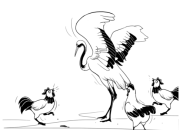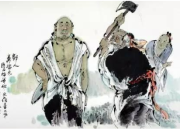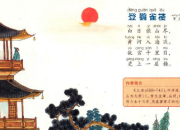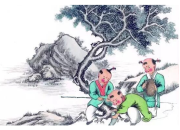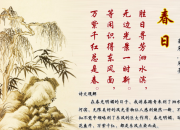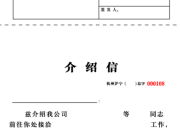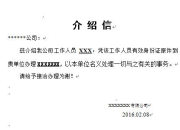我身边的非物质文化遗产英语作文
时间:2021-08-31导语:保护非物质文化遗产,最重要的是保护其本身蕴含的精神,这对于中国特色社会主义文化大发展大繁荣,弘扬传统文化,树立全民族正确价值观都至关重要。下面是yuwenmi小编为大家整理的优秀英语作文,欢迎阅读与借鉴,谢谢!
范文一:Protecting the Intangible Cultural Heritages
Like tangible cultural heritages such as the Great Wall and the Forbidden City, intangible cultural heritages like Peking Opera and Confucius-commemorating rituals are equally crucial. We should make our utmost efforts to preserve intangible heritages because, without their physical form of existence, they are in greater risk of extinction.
According to UNESCO’s Convention for the Safeguarding of Intangible Cultural Heritage (2003), all forms of social customs and habits, folklore, performing arts, rituals, oral traditions, festivals, traditional crafts and various knowledge and practices about nature and universe can be classified as intangible cultural heritages. As a country consisting of a great diversity of ethnic groups and with time-honored history and civilization, China abounds in intangible cultural heritages. Cultural heritages connect modern people with the historical past, allowing them to acquire a cultural and historical identity. Without cultural heritages, we would be rendered absolutely rootless and we would find it hard to cope with challenges at present and in the future.
However, the modernization process poses mounting threats to intangible heritages. Many people have a blind faith in the latest electronic devices. It is also pathetic to see elderly people in possession of such legacies pass away without transmitting them to the younger generation. Faced with those challenges, we should both preserve and renovate our ancestral heritages so that we can help contribute to the cultural diversity of the world and return to our spiritual homeland in this age of impersonal science and technology.
【参考译文】
非物质文化遗产保护
像长城和紫禁城这样的有形文化遗产,像京剧和孔子纪念仪式这样的非物质文化遗产同样重要。我们应该尽最大努力去保护非物质遗产,因为没有它们的物质存在,它们就有更大的灭绝风险。
根据联合国教科文组织的公约对非物质文化遗产保护(2003),各种形式的社会风俗习惯、民俗、表演艺术、仪式、口头传统、节庆、传统手工艺、关于自然和宇宙的知识和实践可以分为非物质文化遗产。作为一个由多种多样的民族,拥有悠久的历史和文明的国家,中国丰富的`非物质文化遗产。文化遗产将现代人与历史的过去联系起来,使他们获得了文化和历史的认同。如果没有文化遗产,我们就会变得完全无根,我们会发现很难应对当下及未来的挑战。
然而,现代化进程对无形遗产构成了威胁。许多人盲目相信最新的电子设备。看到拥有这种遗产的老人没有把它们传给年轻一代,这也是可悲的。面对这些挑战,我们既要保护和更新我们的祖先遗产,使我们能够帮助促进文化多样性的世界,并返回到我们的精神家园在这个时代的客观科学和技术。
范文二:Intangible Cultural Heritages
Intangible cultural heritage is the people of all generations each other, and the life of the masses closely related to a variety of traditional cultural expressions and cultural space. Non material cultural heritage is not only the historical witness of the development, it is the precious, valuable cultural resources. China is a country with a long history of civilization, not only have a lot of material cultural heritage, but also a variety of intangible cultural heritage. The people of all our ethnic groups in the long-term production and life practice to create rich and colorful non-material cultural heritage of the Chinese nation, is the crystallization of the wisdom and civilization, is the link of national affection and maintain national unity based. To protect and make good use of the intangible cultural heritage in China, to implement the scientific outlook on development, implementation economy society the comprehensive, harmonious, can develop continuously have important sense. Non material cultural heritage census, is a country in the early twenty-first Century by a massive culture of the census, is a master of state and regional intangible cultural heritage contains status and understanding public feelings popular means. The census data and data, as part of a comprehensive analysis of the situation of one of important data, is the national or regional authorities to develop cultural policy and the important basis of formulation of policy. Survey of non material cultural heritage and intangible cultural heritage to the effective protection of endangered species, the intangible cultural heritage rescue foundation. Therefore, unite deploy according to the State Council, the national non material cultural heritage in the census, regardless of the Intangible Cultural Heritage Inheritance and development, or to the national surveys, has the important meaning.
【参考译文】
非物质文化遗产是一代又一代人,与群众生活密切相关的各种传统文化表达方式和文化空间。非物质文化遗产不仅是发展的历史见证,更是宝贵、宝贵的文化资源。中国是一个有着悠久文明历史的国家,不仅拥有大量的物质文化遗产,而且还拥有各种非物质文化遗产。各族人民在长期的生产生活实践中,创造出丰富多彩的中华民族非物质文化遗产,是智慧文明的结晶,是民族感情的纽带和维系民族团结的基础。为了保护和利用在中国非物质文化遗产的好用,贯彻落实科学发展观,实现经济社会的全面、协调、可持续发展具有重要意义。非物质文化遗产普查,是一个国家在第二十一世纪初通过大规模的文化普查,是一个掌握国家和地区非物质文化遗产包含地位和理解公众感情流行的手段。普查数据和数据,作为综合分析形势的重要数据之一,是国家或地区机关制定文化政策和制定政策的重要依据。非物质文化遗产和非物质文化遗产调查,以有效保护濒危物种,非物质文化遗产抢救基金会。因此,根据国务院统一部署,在国家非物质文化遗产普查中,无论对非物质文化遗产的继承和发展,还是对国家的调查,都具有重要的意义。
范文三:Intangible Cultural Heritages
As we all know, non-material culture heritage, also called intangible culture, plays an important role in maintaining the continuity of the nation’s civilization and sustainable development. But due to the development of globalization and other reasons, more and more non-material culture heritage are on the verge of distinction. So its protection has become an urgent and important task at present.
What is non-material culture heritage exactly? It refers to various manifestations of traditional culture handed down from generation to generation and closely related to people’s life, including various practices ,performances, festivals, traditional knowledge and skills, the related instruments, artifacts and culture places. For example, paper-cutting and Dragon Boat Festival have been regarded as non-material culture heritage not only by our country but also by the United Nations.
Then how can we protect the intangible culture? First of all, we can introduce special programs and columns on TV or in the newspapers and magazines to arouse people’s awareness of its preservation. Second, we should have a rational attitude towards the acceptance of foreign culture. Last but not least, we can enforce laws to intensify the protection of non-material culture heritage.
【参考译文】
非物质文化遗产
非物质文化遗产,又称非物质文化遗产,对于维护国家文明的持续性和可持续发展具有重要作用。但由于全球化的发展等原因,越来越多的非物质文化遗产濒临灭绝。因此,保护已成为当前一项紧迫而重要的任务。
什么是非物质文化遗产?它是指一代代传下来的与人们生活密切相关的传统文化的各种表现形式,包括各种习俗、表演、节日、传统知识和技艺、相关的乐器、器物和文化场所。例如,剪纸和端午节不仅被我国视为非物质文化遗产,而且被联合国视为非物质文化遗产。
那么我们如何保护非物质文化呢?首先,我们可以在电视或报纸和杂志上引入特别节目和栏目,以唤起人们对其保存的意识。第二,我们应该有一个理性的态度接受外国文化。最后,我们可以加强法律,加强非物质文化遗产的保护。

